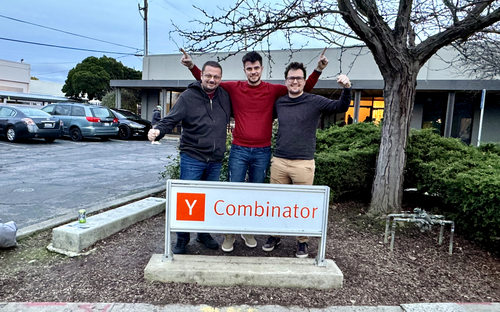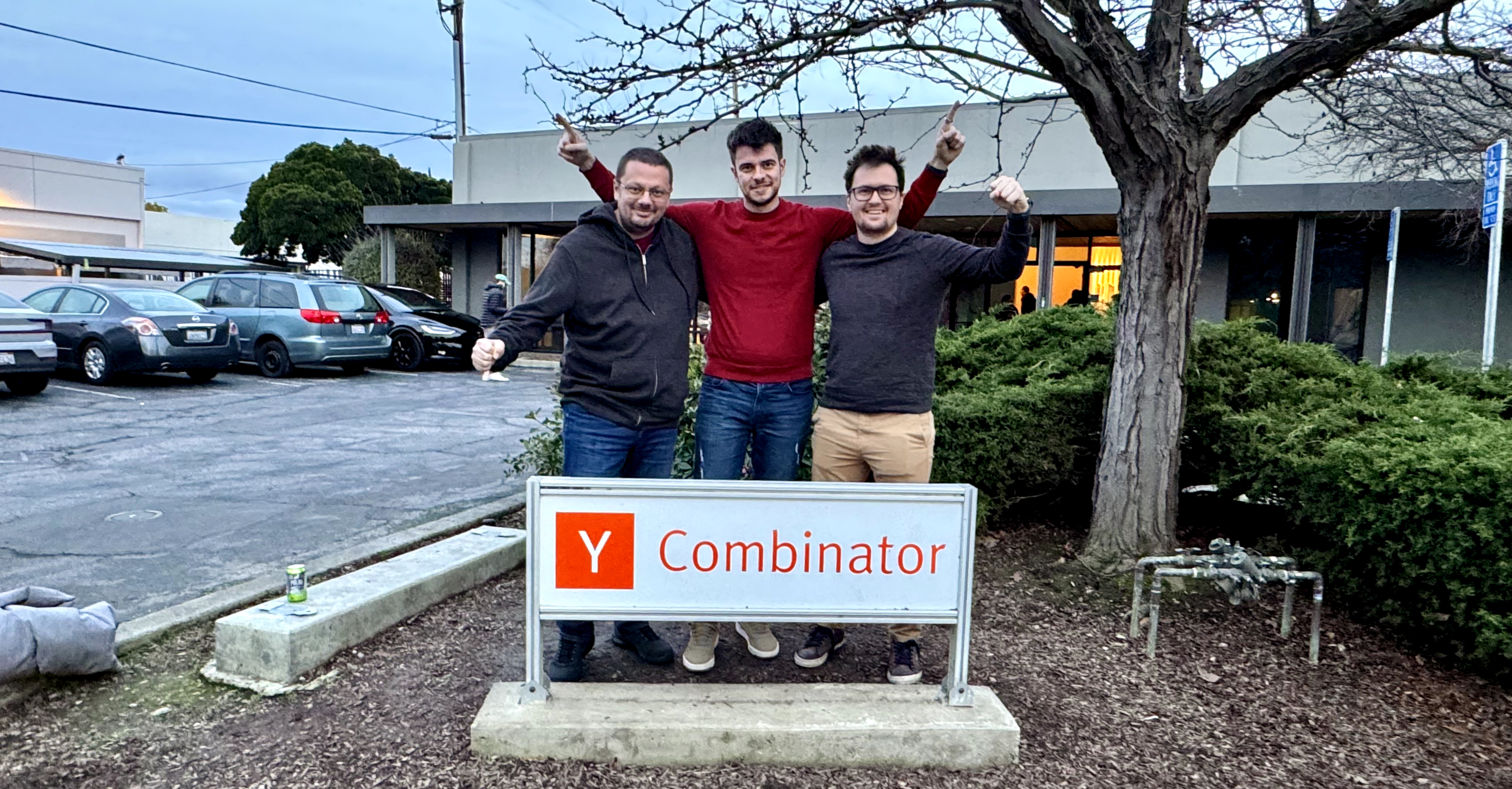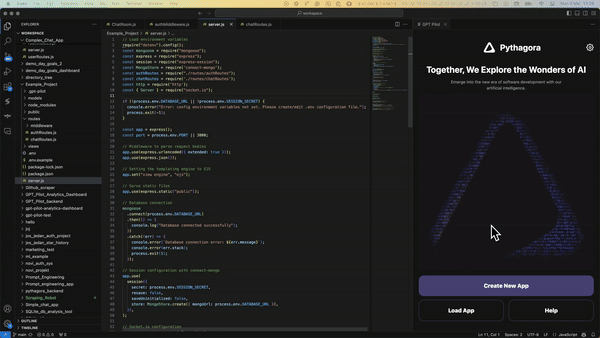
Pythagora (GPT Pilot)
OSS dev tool that builds entire apps from scratch by talking to you
Pythagora is an open source tool that builds apps from scratch by talking to users. It uses LLMs to automate developer workflows (debugging, refactoring, etc.) and ask user questions whenever it needs feedback. It is an IDE extension built on top of our open-source tool, GPT Pilot, which has over 22k Github stars. You start by describing an app you want to build; then, it asks you questions about the details of the app to write the full app specifications. Once the specs are done, it starts coding. When it finishes a task, it asks you to test the app and tell it if something is incorrect. It iterates with you by changing the code and asking you for feedback until the task is finished. Finally, it commits the code it has written and proceeds to the next task until the entire app is finished.
Active Founders
Zvonimir Sabljić
I am an engineer and a technology entrepreneur. I cofounded AWW (A Web Whiteboard), which became a major player in the online whiteboard market. AWW had 1.5M MAU, with Apple as our largest customer. In 2021, it was acquired by Miro. I created two successful open source repositories - automated testing repo that got 1.4k Github stars and now, GPT Pilot, which has over 22k stars. Currently, I'm working on bringing software development into the AI age.
Leon Ostrež
Software engineer, computer scientist (M.Sc.) and entrepreneur. Problem solving and attention to details with big persistence is my passion. I led the tech team at Faze Clan before they went public at $1B valuation and was a key contributor of Plex at Ericsson - the core language that handles 25% of the world's 2G and 3G network communication. I created two successful open source repositories - automated testing repo that got 1.4k Github stars and now, GPT Pilot, which has over 22k stars.
Senko Rašić
Programmer, builder, entrepreneur. More than two decades in the tech industry, always striving to create products that will be loved by users. Now building the future of developer tools with AI. I've cofounded: A Web Whiteboard - a collaborative whiteboard that was used by Apple, and that had 1.5M MAU. It was later acquired by Miro; Good Code - a software consultancy that employed 15 people; WebCamp - the leading regional conference for web developers.
Company Launches
TL;DR Pythagora is not a coding assistant or an autocomplete. It’s a true AI developer that takes your requirements, asks you questions, considers what technologies to use, and creates the development plan. Then, it breaks the plan into tasks, writes code, reads the CLI, fixes bugs, iterates, reviews the code, and asks you questions to make sure it’s on the right track.
🛤 OUR JOURNEY
Senko and Zvonimir met at a startup event in 2016. when Senko was looking for someone who would lead a side project that he started. Zvonimir accepted the challenge, we turned that project into a company, and 5 years later, in 2021, we sold the company to Miro.
Leon and Zvonimir have been best friends since starting college in 2009. After the Miro acquisition, we started learning ML together and playing with different ideas. In 2023, we created our first open-source project for generating automated tests, and it quickly gained 1.4k Github stars. After talking to users and observing how AI is evolving, we decided to pivot to GPT Pilot, which became one of the fastest-growing open-source projects, now with more than 22k Github stars.
While we worked on the GPT Pilot, Senko explored a similar idea, so finally, in October 2023, we decided to join forces and build Pythagora together.
❌ The Problem
Ok, let’s state the obvious - there’s still a huge demand for software development, which is still expensive. On the other hand, we have LLMs that are extremely good at writing code. They can write code snippets like a senior developer but if you ask them to build the full app, it will do a worse job than a junior developer. This is because building production-ready apps is not only writing code. It’s writing code, running it, debugging, iterating, changing requirements, refactoring, and many other mechanisms that developers do every day.
While LLMs are getting smarter every single day, they will always be answering machines—they won’t have the mechanics that allow humans to iteratively progress on building an app.
The good thing is that all these mechanisms are deterministic and repetitive.
🌟 Our Solution
Pythagora is a blueprint of what app development looks like. First, it takes your requirements and asks you questions to clarify how you want your app to look. Then, it thinks about what technologies should be used for your specific app and creates the development plan. Then, it breaks the plan into tasks, writes code, reads the CLI, fixes bugs, iterates, reviews the code, and refactors it. Before making each commit, it asks you questions to make sure that the app works exactly as you want. Finally, it proceeds this way to the next task until the entire app is finished.
Many AI copilots help developers write code faster, but Pythagora goes beyond the current developer experience — we’re reimagining how software development is done.
🙏 Asks
If you know any company that’s looking to build internal tools, it would be amazing if you could connect us. I’d be happy to demo Pythagora to them.
Also, it would be amazing if you could share this launch on Linkedin or Twitter.
Finally, join us on Discord!
YC Sign Photo

Hear from the founders
How did your company get started? (i.e., How did the founders meet? How did you come up with the idea? How did you decide to be a founder?)
Senko and Zvonimir met at a startup event in 2016. when Senko was looking for someone who would lead a side project that he started. Zvonimir accepted the challenge, we turned that project into a company, and 5 years later, in 2021., we sold the company to Miro.Leon and Zvonimir have been best friends since starting college in 2009. and after the Miro acquisition, we started learning ML together and playing with different ideas. In 2023. we created our first open-source project for generating automated tests with AI and it quickly gained 1.4k Github stars. After talking to users and observing how AI is evolving, we decided to pivot to GPT Pilot, which became one of the fastest-growing open-source projects ever.While we worked on the GPT Pilot, Senko was exploring a similar idea, so finally, in October 2023. we decided to join forces and build Pythagora together.


